Home Depot has
Klein Tools MM400 600V Auto-Ranging Digital Multimeter on sale for
$34.97.
Shipping is free.
Thanks to community member
jkilez for finding this deal.
Product Details:
- Multimeter measures up to 600V AC/DC voltage, 10A DC current, 2 MOhms resistance, continuity, batteries, and diodes
- Lead Alert protection with LED's for test lead placement
- Easy-to-view backlit display for low light environments
- Low battery indicator and easily accessible battery and fuse compartment
- Durable meter built to withstand a 6.6-Foot (2 m) drop
- Includes test leads, batteries and user manual
- CAT III 600V safety rating
- For use in basic and controlled electromagnetic environments such as residential, business and light-industrial locations
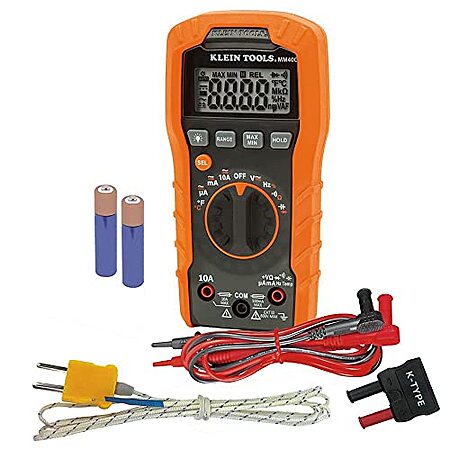
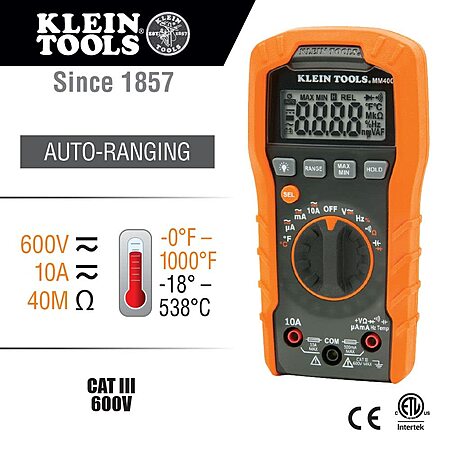
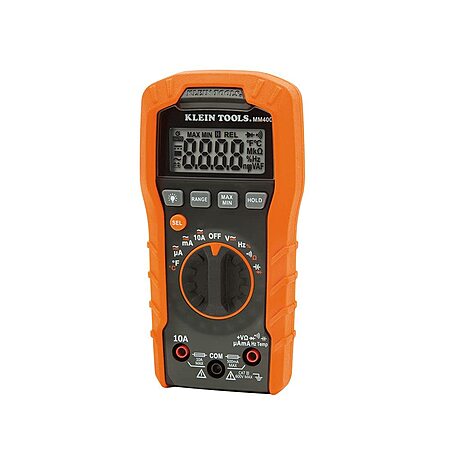
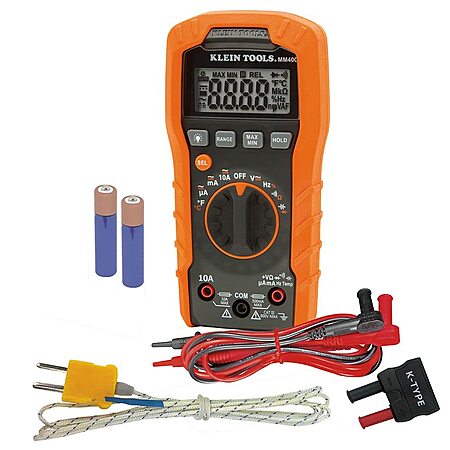
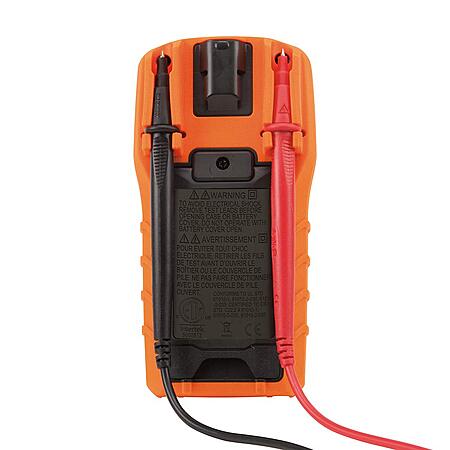
Leave a Comment
Top Comments
Edit: some smarter people corrected me downthread and basically you won't need this unless you really need accurate AC voltage readouts, which you don't most of the time.
In laymans terms, non-inverter and things that aren't "true sinewave" outputs. These include:
Generators without an inverter output
Battery generators that you're pushing beyond its rated power (the waveform tends to stop being sinusoidal after its max range)
Bad power quality / poor wiring situations
Output a battery based ac inverter that isn't a "true sine" such as the stuff that connects to your car battery, UPS, etc.
There are many situations where a TrueRMS output is useful for the everyday layman but many laymans and professionals don't know when those occur.
I have a background in power electronics, power quality, and was a utility engineer.
68 Comments
Sign up for a Slickdeals account to remove this ad.
If you think you'll ever do any testing of wiring around the house in your car or otherwise troubleshooting anything you'll be happy you have this
I bought a carrying case from Amazon and the $3 set of alligator clips at HF and have been very pleased using this for nearly 3 years
Not to home, hobby or even an electrician.
It's a solid basic meter that should last better than the noname units. I've had similar for decades in my grab bag. Save the fancy kit for when actually needed.
Our community has rated this post as helpful. If you agree, why not thank chrisngem
Not to home, hobby or even an electrician.
It's a solid basic meter that should last better than the noname units. I've had similar for decades in my grab bag. Save the fancy kit for when actually needed.
In everyday household electrical use, the non-true-RMS meters will do just fine; and even then - most of us are just "checking" for the presence of voltage (where a pen-tester will suffice). I can't remember the last time I used my meter to measure household electrical parameters, but I did use it as an ohmmeter to trace down a noisy ground loop in my home theater system after purchasing a new receiver.
If you think you'll ever do any testing of wiring around the house in your car or otherwise troubleshooting anything you'll be happy you have this
I bought a carrying case from Amazon and the $3 set of alligator clips at HF and have been very pleased using this for nearly 3 years
Sign up for a Slickdeals account to remove this ad.
Very rarely would happy homeowner or the expert DIY person need true rms.
Most of the time, I reach for my harbor freight cheapo multi meter that I got when they used to give them away for free.
Edit: some smarter people corrected me downthread and basically you won't need this unless you really need accurate AC voltage readouts, which you don't most of the time.
In laymans terms, non-inverter and things that aren't "true sinewave" outputs. These include:
- Generators without an inverter output
- Battery generators that you're pushing beyond its rated power (the waveform tends to stop being sinusoidal after its max range)
- Bad power quality / poor wiring situations
- Output a battery based ac inverter that isn't a "true sine" such as the stuff that connects to your car battery, UPS, etc.
There are many situations where a TrueRMS output is useful for the everyday layman but many laymans and professionals don't know when those occur.I have a background in power electronics, power quality, and was a utility engineer.
Sign up for a Slickdeals account to remove this ad.
In laymans terms, non-inverter and things that aren't "true sinewave" outputs. These include:
- Generators without an inverter output
- Battery generators that you're pushing beyond its rated power (the waveform tends to stop being sinusoidal after its max range)
- Bad power quality / poor wiring situations
- Output a battery based ac inverter that isn't a "true sine" such as the stuff that connects to your car battery, UPS, etc.
There are many situations where a TrueRMS output is useful for the everyday layman but many laymans and professionals don't know when those occur.I have a background in power electronics, power quality, and was a utility engineer.
Leave a Comment